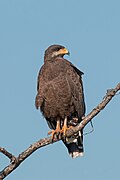Reconstruction:Proto-Turkic/tāna
Hello, you have come here looking for the meaning of the word Reconstruction:Proto-Turkic/tāna. In DICTIOUS you will not only get to know all the dictionary meanings for the word Reconstruction:Proto-Turkic/tāna, but we will also tell you about its etymology, its characteristics and you will know how to say Reconstruction:Proto-Turkic/tāna in singular and plural. Everything you need to know about the word Reconstruction:Proto-Turkic/tāna you have here. The definition of the word Reconstruction:Proto-Turkic/tāna will help you to be more precise and correct when speaking or writing your texts. Knowing the definition ofReconstruction:Proto-Turkic/tāna, as well as those of other words, enriches your vocabulary and provides you with more and better linguistic resources.
Proto-Turkic
Etymology
Borrowed from Iranian, compare Sanskrit धेनु (dhenu) and Avestan 𐬛𐬀𐬉𐬥𐬎 (daēnu). Eren, however, notes that the Iranic word is used for milch cows rather than a heifers.
Noun
*tāna
Declension
| singular 3) | |
|---|---|
| nominative | *tāna |
| accusative | *tānag, *tānanï1) |
| genitive | *tānanïŋ |
| dative | *tānaka |
| locative | *tānada |
| ablative | *tānadan |
| allative | *tānagaru |
| instrumental 2) | *tānan |
| equative 2) | *tānača |
| similative 2) | *tānalayu |
| comitative 2) | *tānalïgu |
1) Originally used only in pronominal declension.
2) The original instrumental, equative, similative, and comitative cases have fallen into disuse in many modern Turkic languages.
3) Plurality in Proto-Turkic is disputed. See also the notes on the Proto-Turkic/Locative-ablative case and plurality page on Wikibooks.
2) The original instrumental, equative, similative, and comitative cases have fallen into disuse in many modern Turkic languages.
3) Plurality in Proto-Turkic is disputed. See also the notes on the Proto-Turkic/Locative-ablative case and plurality page on Wikibooks.
Descendants
See also
| Animals in Turkic | |||||
|---|---|---|---|---|---|
 |
dog: *ï̄t |
 |
hunting dog: *eker |
 |
hen: *tiakïgu |
 |
lark: *torgay |
 |
dove, pigeon: *kȫkerčin |
 |
quail: *bïldurčïn |
 |
sparrow: *serče |  |
hawk, falcon: *kïrguy |
 |
goose: *kāŕ |
 |
wolf: *bȫrü |
 |
cow: *ingek |
 |
calf: *buŕagu |
 |
camel: *tebe |
 |
young of camel: *kȫĺek, *botu |
 |
horse: *at |
 |
foal: *kulun |
 |
worm: *kūrt |
 |
snake: *yï̄lan |
 |
fox: *tilkü |  |
goat: *keči |  |
he-goat: *teke |
 |
lion: *arsïlan |
 |
fish: *bālïk | carp bream: *čapak | |
 |
donkey: *eĺčgek |  |
carp: *siāŕgan |  |
catfish: *yāyïn |
 |
beaver: *kunduŕ |  |
hedgehog: *kirpi |  |
badger: *borsmuk |
 |
fly, mosquito: *siŋek |  |
wasp, bee: *ārï |  |
gadfly: *bȫgen |
 |
moth: *küńe |  |
louse: *bït |  |
earthworm: *sïbuĺgan |
 |
yak: *kotuz |  |
colt: *sïp |  |
dragon: *siāŕgan |
 |
worm: *kūrt |  |
deer: *keyik, *sïgun, *bulan, *bugu |  |
lizard: *keleŕ |
References
- ^ Róna-Tas, András, Berta, Árpád, Károly, László (2011) West Old Turkic: Turkic Loanwords in Hungarian (Turcologica; 84), volume II, Wiesbaden: Harrassowitz Verlag, pages 909-911
- ^ tinó in Tótfalusi, István. Magyar etimológiai nagyszótár (’Hungarian Comprehensive Dictionary of Etymology’). Budapest: Arcanum Adatbázis, 2001; Arcanum DVD Könyvtár →ISBN
- ^ tinó in Zaicz, Gábor (ed.). Etimológiai szótár: Magyar szavak és toldalékok eredete (‘Dictionary of Etymology: The origin of Hungarian words and affixes’). Budapest: Tinta Könyvkiadó, 2006, →ISBN. (See also its 2nd edition.)
- Çağbayır, Yaşar (2007) “dana”, in Ötüken Türkçe Sözlük (in Turkish), Istanbul: Ötüken Neşriyat, page 1096
- Dybo, A. V. (2007) Lingvističeskije kontakty rannix tjurkov: leksičeskij fond, pratjurkskij period (in Russian), Moscow: Oriental Literature, Russian Academy of Sciences, page 9
- Eren, Hasan (1999) “dana”, in Türk Dilinin Etimolojik Sözlüğü (in Turkish), Ankara: Bizim Büro Basım Evi, page 105
- Nişanyan, Sevan (2002–) “dana”, in Nişanyan Sözlük
- Räsänen, Martti (1969) Versuch eines etymologischen Wörterbuchs der Türksprachen (in German), Helsinki: Suomalais-ugrilainen seura, page 460

